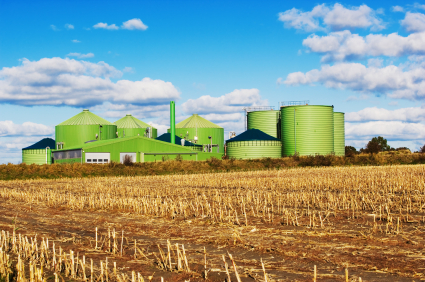BioDigestion and the Future
Less waste, more efficiency if we use anaerobic digestion more widely
There is the potential today in the UK to regenerate jobs in the rural economy, provide power and reduce greenhouse gas emissions (GHGs) by utilising anaerobic biodigestion to a much greater extent. AD as it is known, uses micro-organisms to break down biological material in the absence of oxygen. The process is used for industrial or domestic purposes to manage waste and/or to produce fuels. This process was discovered centuries ago but it has become important as the amount of GHGs emitted in agriculture was realised, and also the opportunities to utilise this process to provide “digestate” – that is valuable fertiliser, and turn waste heat into power, a double whammy of a bonus.
Formerly farm-sized, now improvements in technology can make it worth while to have small biodigesters on allotments, and even powered by waste from say as few as four suburban gardens. It is also a precursor of the “circular economy” where, instead of perpetual growth, we produce enough to give us a decent standard of living, while recycling inputs so we are not harvesting the resources of a finite world. A long way to go to achieve this concept, but you have to start somewhere.
Tony Juniper, the environmental campaigner, formerly of Friends of the Earth, addressing the ABDA national conference recently, said that biodigestion “is one of the areas which will be necessary for the shift to a circular economy. Nature is of course a circular economy: there is no waste, everything produced is returned to nature as art of the next cycle or loop, unlike our fossil fuel perpetual growth economy, which is using the accumulated sunlight of hundreds of millions of years of organic growth and blasting it into the atmosphere.” He added, “We don’t need to wait to create a circular economy – all of the technologies necessary have already been invented.”

Germany is ahead of the UK in utilising biodigestion, but UK farmers are catching on to its enviable qualities. Patrick Holden, organic farmer, and founder of the Soil Association, says he hasn’t used nitrogen fertilisers for 30 years and that his crops are much healthier than his neighbouring farms due to the digestate he uses on them. One very important farming element is phosphorus, and what happens on many conventional farms is that it is put on the land, then washed away to end up in the sea, which is non-recoverable, as the phosphorus is then too diluted, whereas if it is recaptured through the AD process, then little is lost.
The biogas produced by AD is usually sufficient to run an electricity generator, powering the AD system and having some surplus for powering other farm units, such as milking machines – don’t let anyone tell you there is no such thing as a free lunch. This is a beneficial situation because the energy is produced in situ, so the external costs, both financial and in terms of pollution, are minimised. This is against a backdrop of predicted rising global gas prices, so creating your own biomethane from waste is a very sensible decision for many farmers.
There is plenty of waste within the UK system to make it worth while utilising AD more extensively, perhaps by legislating to ensure that supermarket and other organic waste is brought into the AD system, instead of being sent to landfill where it rots and emits greenhouse gases like methane.
The Anaerobic Digestion & Biogas Association
Visit Renewable Energy Jobs for the latest renewable energy career opportunities.


